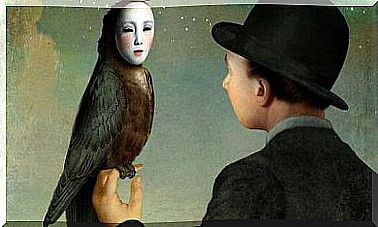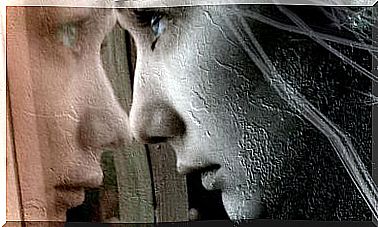How Does The Judgment That Others Make Of Us Affect Us?

We tend to label people, whether physically or psychologically, for good or for bad, and we attribute qualities to them according to our perception or experience. We also do this with people of all ages, based on what we’ve heard: “this child is very bad”, “this boy doesn’t like to study”, “this child looks silly”…
We all like labels (to simplify our reality and therefore reduce our cognitive load), we like to assign meanings to actions, characteristics, emotions, and if that works for people too, why not?
Furthermore, this behavior is not frowned upon in our society (as long as it is not an insult). Parents label their children according to their success in school, their behavior at home… Teachers label their students, the good, the bad, the lazy, the smart…. Children label each other according to physical or mental characteristics (although generally children, especially younger ones, label by physical).
How does the judgment of others influence us?
It is known that the belief that one person has about another can influence their performance ; this is called the Pygmalion effect.
Depending on the type of judgment, this can have a positive or negative impact on a person’s development. This could affect an area of the person’s life or personality.
For example:
The child who, from an early age, heard at school and at home that she was very prepared and that her future would be a success. This child grew up believing in his possibilities, with great self-esteem and self-confidence, so probably her studies and her economic situation responded accordingly.
The girl who liked to play the piano, but who, at the Conservatory and with her parents at home, heard that it was making a terrible noise and that the music was not pleasant. This girl probably stopped playing and acquired negative feelings towards the music. And in fact, she may feel insecure about starting something new for fear of “not being good” or “not being deserving” in the eyes of others, of course.
That’s why I say that assigning a label to a certain period of a person’s life can follow him throughout his life. You can influence their personality, feelings, emotions, their view of themselves and the way they handle actions in real life. When in fact, most cases are quite momentary, from one stage of life, consequently it is something that can be resolved.
For example:
The child who is labeled lazy because he hasn’t done the homework for a week (this week he may have had family problems at home and was depressed, or didn’t feel able to do it). For things like this, the labels will start to follow you throughout your life.
Remove labels
I propose to remove the labels. We are beings with an incredible capacity for change and adaptation, and labels will only limit us. While it seems that the Pygmalion effect is somehow positive, that it only has benefits, it can also take on negative connotations. Because like I said, we’re not all the same in the eyes of others. Maybe our parents have labeled us since we were very young, and when we grew up, we were shocked by reality.
We become what we believe we are, and often act just to get some labels (“he’s a genius,” “he’s a winner”…) or avoid them (“he’s a wimp,” “he’s a bad person ”…), rather than acting in our own interests.
Let no one limit you, let no one tell you what you are and what you cannot do. Pursue your dream, fight for it and never stop trying.









